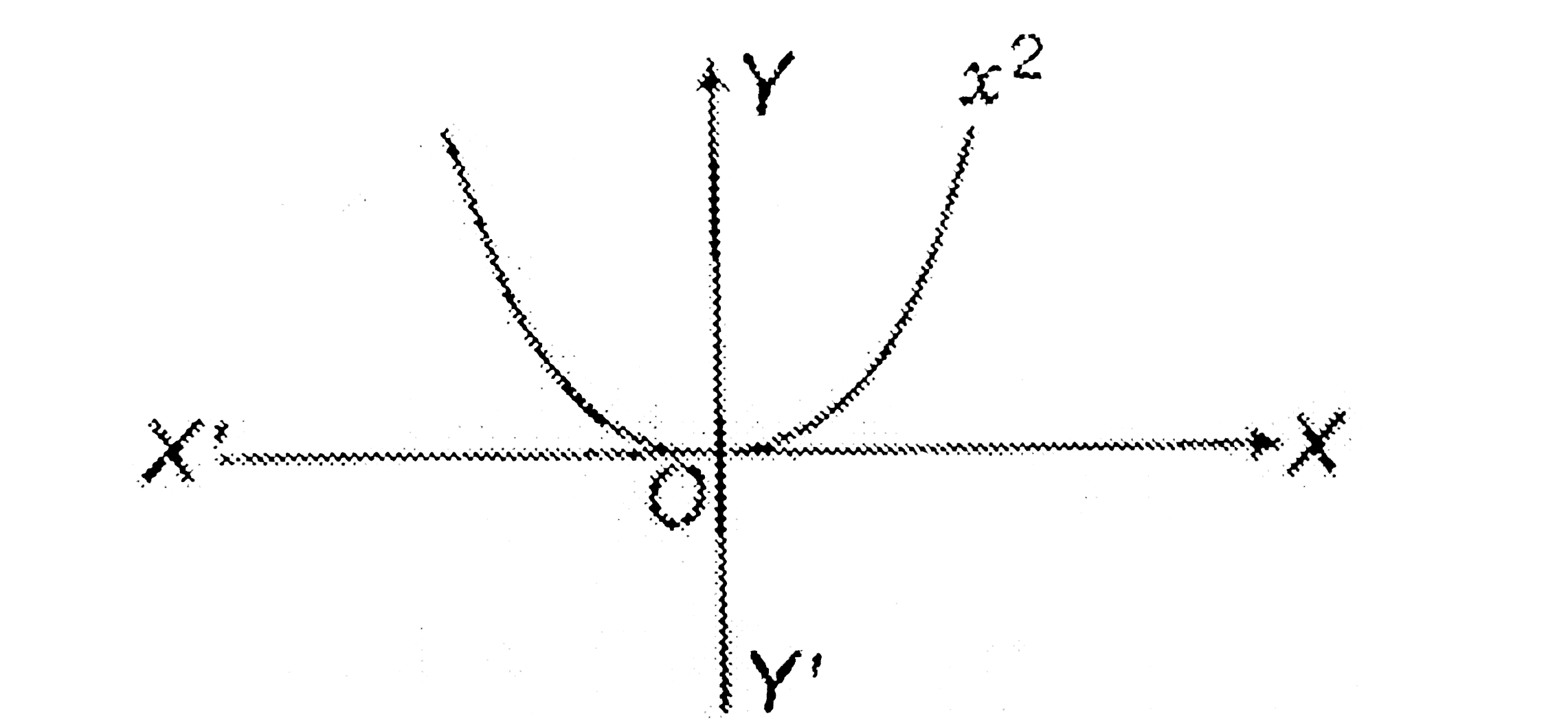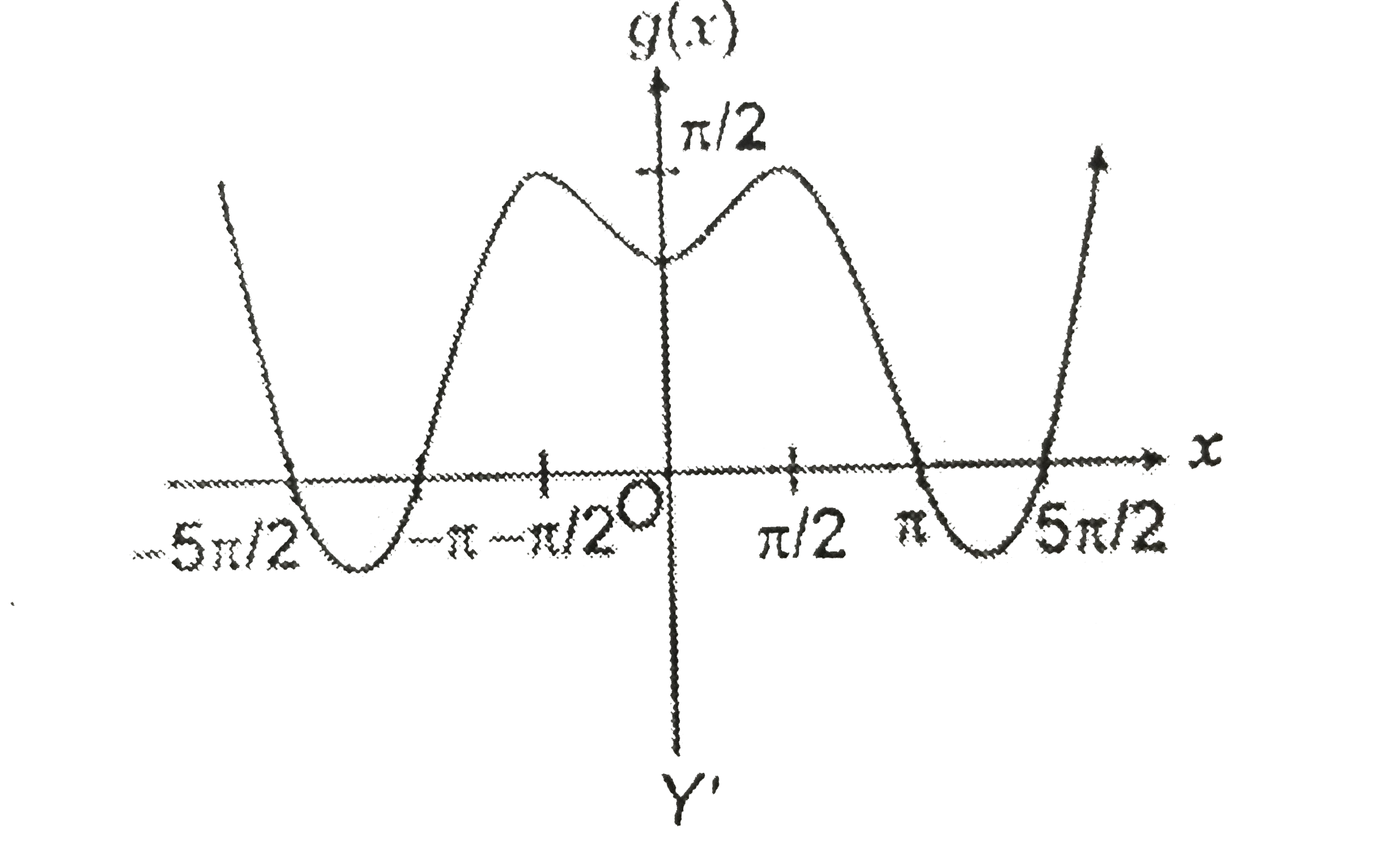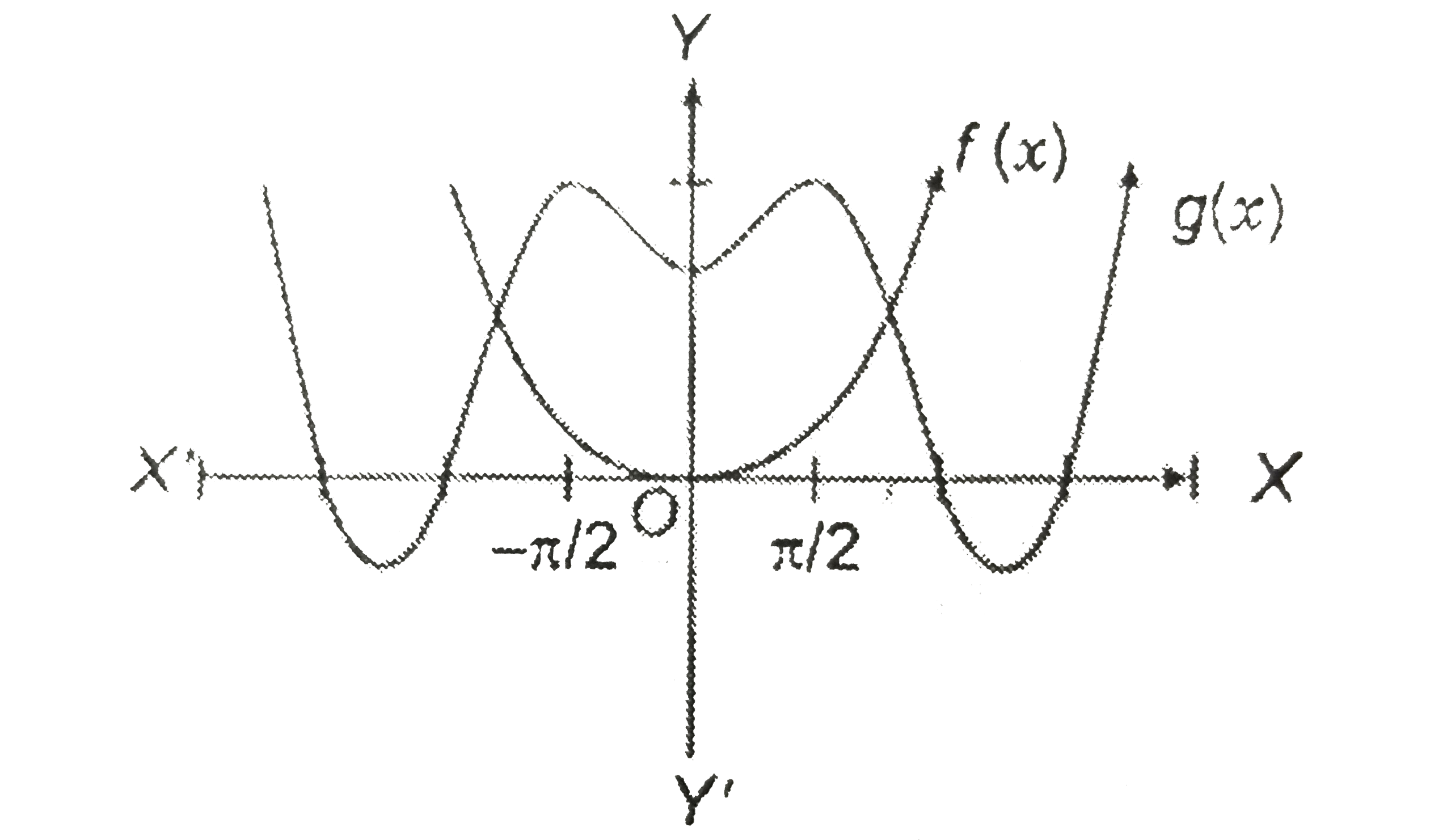The number of points in (−∞,∞), for which x2−xsinx−cosx=0, is
A
6
B
4
C
2
D
0
Video Solution
Text Solution
The correct Answer is:C
Here , x2=xsinx+cosx

Let f(x)=x2andg(x)=xsinx+cosx
We know that, the graph for f(x)=x2
To plot, g(x)=xsinx+cosx
g'(x)=xcosx+sinx−sinx
g'(x)=cosx ...(i)
g''(x)=−xsinx+cosx ..(ii)
Put g'(x)0→xcosx=0
∴x=0,π2,3π2,5π2,7π2

At x=0,3π2,7π2,....,f''(x)>0 , so minimum
At x=π2,5π2,9π2,...,f'(x)<0, so maximum
So, graph of f(x) adn g(x) are shown as

So, number of solution are 2.
|
Topper's Solved these Questions
- APPLICATION OF DERIVATIVES BOOK - IIT JEE PREVIOUS YEARCHAPTER - APPLICATION OF DERIVATIVES EXERCISE - MAXIMA AND MINIMA (OBJECTIVE QUESTIONS II)
8 Videos
- APPLICATION OF DERIVATIVES BOOK - IIT JEE PREVIOUS YEARCHAPTER - APPLICATION OF DERIVATIVES EXERCISE - MAXIMA AND MINIMA (MATCH THE COLUMNS)
1 Video
- APPLICATION OF DERIVATIVES BOOK - IIT JEE PREVIOUS YEARCHAPTER - APPLICATION OF DERIVATIVES EXERCISE - ROLLES AND LAGRANGES THEOREM (ANALYTICAL & DESCRIPTIVE QUESTION)
1 Video
- 3D GeometryBOOK - IIT JEE PREVIOUS YEARCHAPTER - 3D GeometryEXERCISE - Equation of Plane Objective Question II (Integer Answer Type Question)
1 Video
- AREABOOK - IIT JEE PREVIOUS YEARCHAPTER - AREAEXERCISE - AREA USING INTEGRATION
55 Videos
Similar Questions
Knowledge Check
The number of points in (−∞,∞) for which x2−xsinx−cosx=0, is
A6B4C2D0Let f(x)<0∀x∈(−∞,0)andf(x)>0∀x∈(0,∞) also f(0)=0, Again f'(x)<0∀x∈(−∞,−1)andf'(x)>∀x∈(−1,∞) also f'(−1)=0 given limx→∞f(x)=0andlimx→∞f(x)=∞ and function is twice differentiable.
The minimum number of points where f'(x) is zero is:A1B2C3D4If f:[0,∞)→[0,∞) is a function with f(0)=0 and f'(x)>1∀x∈(0,∞) then number of solution(s) of the equation f (x) = f' (x) is
A0B1C2Dinfinite
The number of points at which the function f(x)=max{a−x,a+x,b},−∞<x<∞,0<a<b cannot be differentiable is :
View SolutionFind the number of integral vaues of 'a' for which the range of function f(x)=x2−ax+1x2−3x+2is (−∞,∞),
View SolutionThe set of all real numbers x for which x2−|x+2|+x>0 is (a)(−∞,−2)∪(2,∞) (b) (−∞,−√2)∪(√2,∞) (c)(−∞,−1)∪(1,∞) (d) (√2,∞)
View SolutionThe set of all real numbers x for which x2−|x+2|+x>0 is (−∞,−2) b. (−∞,−√2)∪(√2,∞) c. (−∞,−1)∪(1,∞) d.(√2,∞)
View SolutionLetf(x)={x+2,x<−1;x2,−1≤x<1and(x−2)2,x≥1 Then number of times f′(x) changes its sign in (−∞,∞) is___
View Solution